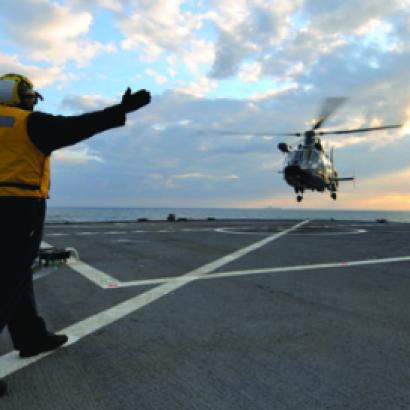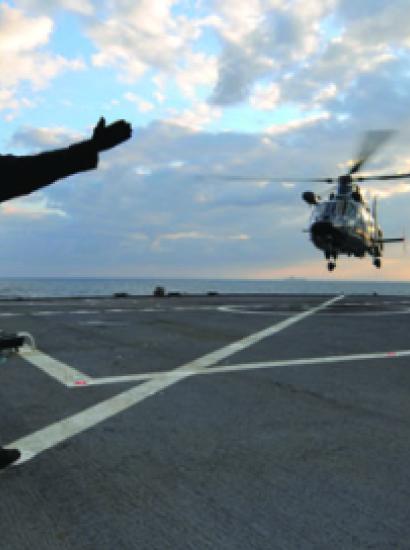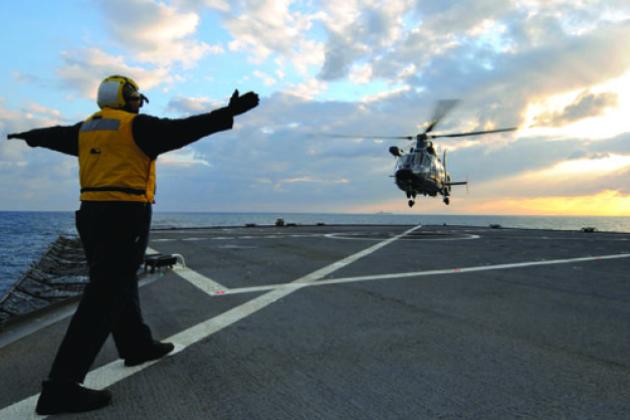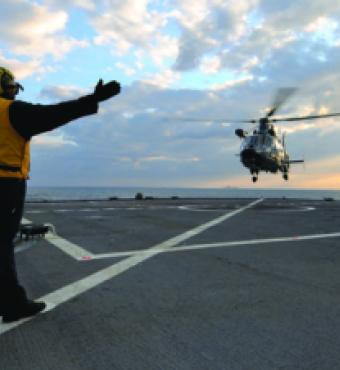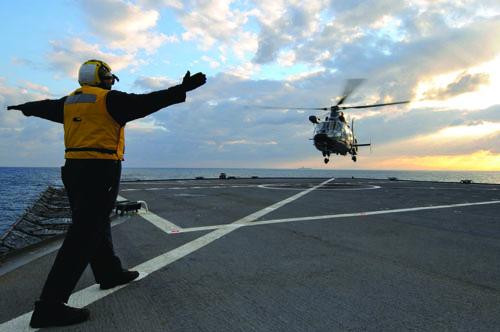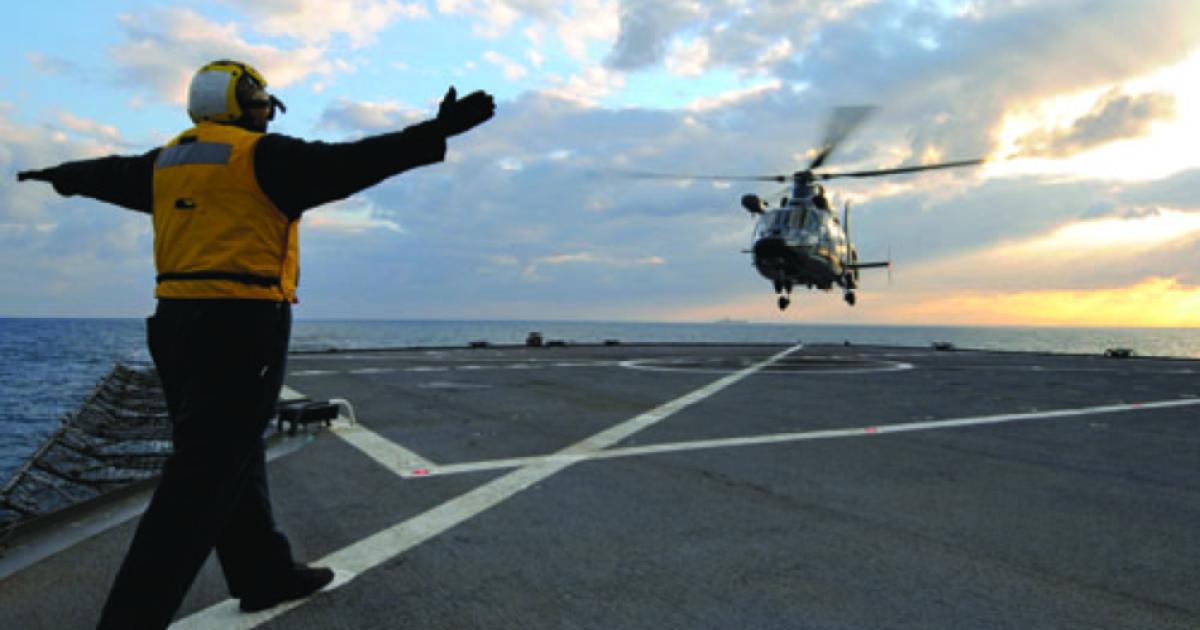- Economics
- Energy & Environment
- International Affairs
- US Foreign Policy
- Military
- Contemporary
- Security & Defense
- US Defense
- Terrorism
- History
The West’s military intervention in Libya was marketed with the claim that its purpose, as French President Sarkozy put it, was “to protect the civilian population from the murderous madness of a regime that has forfeited all claim to legitimacy.” Behind this humanitarian idealism, however, lurked a host of questions and dangers, reflecting wishful thinking rather than a prudent foreign policy.
First, we should acknowledge that the intervention was an American show from the beginning. The French and British, along with a few Arab allies, provided some warplanes and a few missiles, but the bulk of the materiel and intelligence assets that make such attacks possible were American. Thus the U.N. Security Council resolution and the participation of NATO served to give a patina of internationalism to an American action. This fact should remind us—particularly those who are proponents of internationalist and multilateralist idealism—that the United States, not any international institution or coalition, is the world’s peacekeeper, responsible for maintaining the global order that makes possible the globalized economy enriching everybody else. Given that the United States undertook most of the costs and risks, our interests and security should have been the primary reason for our participation.
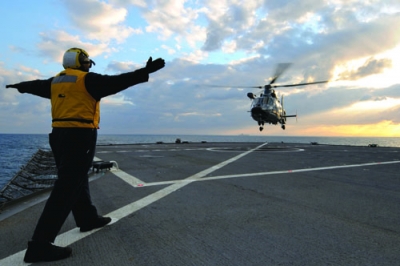
Next, all talk of humanitarian idealism aside, national self-interest is mainly why NATO nations and the Arab League chose to get involved in Libya. Back in 2003, the French weren’t as keen for the much more difficult and costly task of getting rid of Saddam Hussein and “the murderous madness” of his regime, one whose toll of torture, murder, and terrorism vastly outstripped the grisly record of Muammar Gadhafi. Too many French leaders had profited too long from their cozy friendship with the butcher of Baghdad, buying his oil and selling him advanced weaponry. But earlier this year, the French calculated that they could obtain some international prestige on the cheap, given that the United States would once again carry most of the load and in the end take most of the blame if things went badly in Libya. As for the Arab League, which quickly parroted Gadhafi’s propaganda as soon as airstrikes commenced, it apparently supported only the appearance of action without its necessary consequences. (And it takes considerable cheek for regimes that brutalize their own people to call for the removal of Gadhafi because he brutalizes his own people.)
The lesson here is one George Washington understood: “No nation is to be trusted farther than it is bound by its interest.” So what are the national and security interests of the United States in this intervention?
The received wisdom of Republican and Democratic foreign policy alike is that support for brutal dictators in the long run tarnishes our prestige and harms our interests by squelching the democratic aspirations of the oppressed. Particularly in the Middle East, this “democracy deficit” has empowered the jihadists who turn to a debased form of Islam in compensation for a lack of freedom. Removing these oppressive autocrats thus will clear space for incipient democratic movements to create regimes founded on liberal democratic principles of freedom, tolerance, human rights, and the rest. And our efforts to liberate oppressed Muslims will buy us their affection and support, further eroding the appeal of jihadism and making us more secure from terror.
But this dogma appears to lack a sober understanding of reality. Already we have liberated oppressed Muslims in the Balkans, Kuwait, Afghanistan, and Iraq, and now we have decided to liberate (maybe) oppressed Muslims in Libya. How much goodwill have these actions bought us in the Muslim world? Did liberating millions of Shiites from a murderous tyrant in Iraq make Shiite Iran stop regarding us as the Great Satan? We have to free ourselves from the curiously arrogant assumption that the world determines its policies and beliefs simply in reaction to what we do. The Muslims’ religious worldview and sensibility condition their actions and interests, and we must understand those spiritual beliefs on their own terms rather than reducing them to the materialist determinism that dominates our thinking. The Ayatollah Khomeini once pointed out that he hadn’t started an Islamic revolution to lower the price of melons.
In the current crisis, this means seeing beyond the feel-good terms “democracy” and “freedom” and thinking about what sorts of regimes will take the place of the autocrats we help remove, and whether those regimes will better serve our interests. We still don’t know what sort of regime will arise in Egypt, but so far the implications for our interests aren’t good, given the substantial Egyptian opposition to the peace treaty with Israel; the release of many jihadists, including two who participated in the assassination of Anwar Sadat; and the increasing clout of the Muslim Brotherhood, whose number two leader said recently, “Our people and societies must realize that their main enemy abroad is the U.S. and the Zionist gang, and that their main enemy within is Israel. Everybody must take this into account, and must be aware that this is the enemy that lurks in the midst of Middle Eastern society. This must be clear to everybody.”
We should also be troubled that the Westernized moderate Mohamed ElBaradei was pelted with stones and shoes and driven away from the polls so he couldn’t vote against a referendum supported by the Muslim Brotherhood, while security forces stood by and watched. As Barry Rubin writes, “At this point—to show how bad the situation is in practice—Amr Moussa, veteran radical Arab nationalist, Israel-baiter, and anti-American, is quickly becoming the best one can hope for in terms of the new regime.”
As for Libya, we still know too little about what the rebels want, or even who they are. Even more troubling, the rebels’ stronghold, eastern Libya, has been the home of the Al-Qaeda-affiliated Libyan Islamic Fighting Group (LIFG). According to a Stratfor report, jihadist personnel files captured in Iraq revealed that on a per capita basis, Libyans made up the largest percentage of foreign insurgents, and 85 percent of the Libyans said they intended to become suicide bombers. Finally, the majority of these fighters listed their hometowns in Libya as Darnah and Benghazi, the latter the de facto capital of the rebellion.
The implications of the removal of Gadhafi—who had worked out a mutually beneficial modus vivendi with the LIFG—or the splintering of Libya into two countries are not good for American interests. As the Stratfor report warns,
Even if Gadhafi, or an entity that replaces him, is able to restore order, due to the opportunity the jihadists have had to loot military arms depots, they have suddenly found themselves more heavily armed than they have ever been inside their home country. And these heavily armed jihadists could pose a substantial threat of the kind that Libya has avoided in recent years. . . . The looting of the arms depots in Libya is also reminiscent of the looting witnessed in Iraq following the dissolution of the Iraqi army in the face of the U.S. invasion in 2003. Not only was that ordnance used in thousands of armed assaults and indirect-fire attacks with rockets and mortars, but many of the mortar and artillery rounds were used to fashion powerful IEDs. This concept of making and employing IEDs from military ordnance will not be foreign to the Libyans who have returned from Iraq (or Afghanistan, for that matter). This bodes ill for foreign interests in Libya, where they have not had the same security concerns in recent years that they have had in Algeria or Yemen. If the Libyans truly buy into the concept of targeting the far enemy that supports the state, it would not be out of the realm of possibility for them to begin to attack multinational oil companies, foreign diplomatic facilities, and even foreign companies and hotels.
Murderously mad, illegitimate regimes, many of them much worse than Gadhafi’s, are as common as flies. The danger and hypocrisy exposed by events in Libya reinforces the truth that our interventions abroad must be in the service of our own interests. Intervening in a civil war in service to other nations’ interests and our own misplaced idealism––without a clear knowledge of the rebels’ aims, or a reasonable estimation of what sort of regime will be in place when the smoke clears––endangers those interests and puts our national security at risk.








